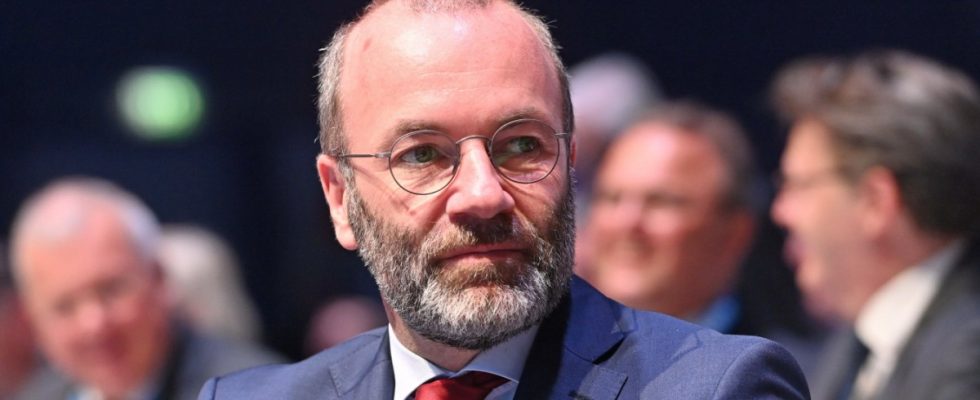The world of European migration policy, as Manfred Weber sees it, is divided into three groups. On the one hand, there are the right-wing agitators who mobilize their supporters with the fear of refugees. On the other hand, there are the moralizers, located in the left and green milieu, who, when trying to reduce the number of refugees, refuse any cooperation with states like Tunisia because human rights are violated there. And thirdly, there are the pragmatists who are looking for solutions. There the CSU politician sees himself and the European People’s Party (EPP) he leads.
With this claim, Weber traveled to Tunis for two days this week. He spoke to President Kais Saied about the partnership agreement the EU signed with Saied in July. Financial aid of one billion euros could flow to Tunisia if the specific conditions are agreed in the next few months. 105 million euros have already been transferred to strengthen Tunisia’s border protection.
Local politicians in Italy complain that they are overburdened
The talks were very respectful, says Weber. It is about developing long-term relations between Tunisia and the EU. After a long phase of alienation, also caused by European arrogance, there is now a common working basis. But his message was clear: “It’s about a lot of money from European taxpayers. We need results. The numbers have to go down.” But that is not the case, the number of refugees has not yet fallen. They also went up in the last few weeks. This could jeopardize the entire migration policy of the European Union by autumn at the latest.
More than 110,000 migrants have already come to Italy via the Mediterranean this year, twice as many as in 2022, most of them from Tunisia. The island of Lampedusa, the southernmost outpost, has run out of capacity. Local politicians across the country are complaining that they are overburdened with housing refugees. And many migrants continue to travel to other EU countries.
The Tunisian government justifies itself by saying that many migrants who are in the country have been startled by the EU-Tunisia deal. They would now seek their last chance to cross the sea to Italy. However, an agreement that Saied recently concluded with Saudi Arabia gives reason for speculation. Tunisia will therefore receive financial aid of around 500 million dollars, without conditions. Europe, on the other hand, insists that the country must meet the conditions of the International Monetary Fund.
A pattern for other states
So doesn’t Saied need the Europeans anymore? In any case, the Tunisia agreement is of strategic importance for the EU. It is intended to be a model for working with countries such as Morocco and Egypt to close escape routes. But now it has come under criticism from all sides.
A “Team Europe” with Commission President Ursula von der Leyen, Italy’s Prime Minister Giorgia Meloni and Dutch Prime Minister Marc Rutte concluded the agreement in July without adequately informing the Council of member states. The German government, like many others, was piqued. In addition to the formal concerns, there are also human rights concerns.
It is not only activists who insist that the Tunisian President cannot be a partner for the EU because he governs autocratically and treats refugees from sub-Saharan Africa inhumanely. Dozens have apparently died because Tunisian border officials literally sent them into the desert. This agreement is a mistake, says even Frans Timmermans, until recently deputy von der Leyens and now the top candidate of the Social Democrats and Greens in the Dutch election campaign.
Manfred Weber says he raised the issue of human rights with Saied. Europe knows its humanitarian obligations. It is also about ending dying in the Mediterranean. This is one of the reasons why Europe must come to agreements with the North African states.
If irregular migration across the Mediterranean does not decrease soon, this would jeopardize the reform of European asylum law. In June, the member states reached an agreement in principle: in future, asylum procedures for applicants with few prospects should be processed in a fast-track procedure in large camps at the EU’s external borders. Meloni only agreed to the regulation, which would place great strains on her country, because she was promised the Tunisia deal.
That is why the head of government is now under pressure. She has promised her compatriots falling numbers. Her state secretary said this week: The number of migrants coming from Tunisia continues to rise. But the momentum with which it is increasing is fading. Their followers will not be satisfied with arithmetic games for long. At the European level, Giorgia Meloni has so far belonged to Manfred Weber’s category of pragmatists in migration policy.

